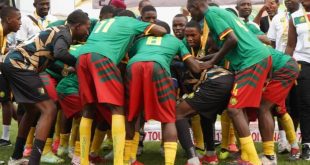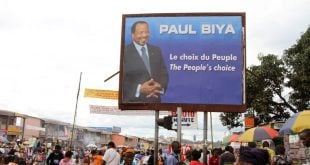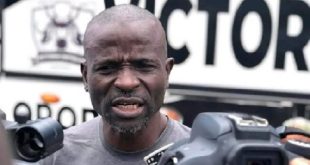Africanews | Cameroonian traders living on the border with Equatorial Guinea are “suffering a lot” since the closure of Equatorial-Guinean land borders in preparation for the presidential campaign that will begin on November 3 in this small Central African country.
On October 25, Vice President Teodorin Nguema Obiang justified this measure as a way ‘to prevent the infiltration of groups that may try to destabilise the campaign’, without giving an official date for the reopening of borders and specifying that only airports would remain open.
Many are taking prohibited routes through the bush to attend to their usual errands at the popular Kye Ossi.
Guinea shuts land borders ahead of election campaign
Equatorial Guinea on Monday closed its land borders with Cameroon and Gabon to prevent what it describes as “infiltration” groups intent on “destabilising” the presidential election campaign starting this week.
Vice President Teodoro Nguema Obiang Mangue had said the measure would “prevent the infiltration of groups who may attempt to destabilise the (election) campaign”, which begins on Thursday.
He did not fix a date for the reopening of the borders when he announced last Tuesday that only airports would remain open.
A local official in the northern border town of Ebebiyin told AFP on condition of anonymity that the frontier had been closed since Monday morning.
Initially scheduled for April 2023, the presidential poll was brought forward to November 20 to coincide with legislative, senate, and local elections following a decree by long-serving leader Teodoro Obiang Nguema Mbasogo.
The war in Ukraine and the Covid-19 pandemic were cited as the reasons behind the decision to hold the costly votes simultaneously.
The central African nation has heightened border security since what the authorities described as an aborted coup attempt in late 2017 that aimed to kill President Obiang.
The coup was allegedly orchestrated by Equatorial Guineans and foreign mercenaries crossing from Cameroon.
Equatorial Guinea regularly shuts its borders on security grounds despite a regional agreement on the free movement of people and goods with Cameroon, Gabon, Congo-Brazzaville, the Central African Republic, and Chad.
The country possesses major oil and gas resources, but a majority of its 1.3 million people live below the poverty line, according to the World Bank.
 CameroonOnline.org Cameroon news, Actualité Camerounaise, live Web TV & Radio, World News and a lot more
CameroonOnline.org Cameroon news, Actualité Camerounaise, live Web TV & Radio, World News and a lot more



